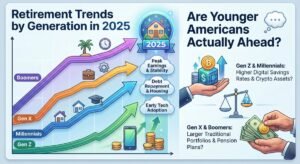Benazir Income Support Programme (BISP) provides cash aid to poor families. Learn about the 8171 SMS service (eligibility checks), how to apply or check payments, stipend amounts, recent updates (2024–25), and key contacts.
Table of Contents
Benazir Income Support Programme (BISP) – Overview
The Benazir Income Support Programme (BISP) is Pakistan’s largest targeted cash-transfer scheme, launched in July 2008 to reduce poverty by giving unconditional cash payments mainly to women-headed households. It is designed as a social safety-net program focused on the poorest families. BISP uses a poverty assessment (National Socio-Economic Registry) to identify eligible households and delivers payments to the female head of household as a stipend. The program has grown to cover millions of families nationwide.
8171 SMS Service – How It Works
BISP’s 8171 service is an SMS-based helpline for beneficiaries and applicants. Sending a 13-digit CNIC (no dashes) via SMS to shortcode 8171 automatically triggers a reply about eligibility or payment status. For example: open a new SMS, enter your CNIC (e.g. 1234512345671) with no spaces, and send it to 8171. Within minutes (or a few hours) you’ll receive an automated message stating whether you qualify, are under review, or are ineligible. Beneficiaries must use the SIM card registered to the CNIC on the message, otherwise the system won’t recognize them. Always rely on official 8171 messages from your own CNIC and avoid claims from other numbers – BISP warns that 8171 is the only legitimate number and others are likely fraudulent. If you do not receive a response, ensure your SIM is linked to your ID or try again.
Who Can Use 8171: Any Pakistani citizen can use 8171. The service checks programs under the Ehsaas/BISP umbrella: basic Kafaalat stipends, emergency grants, and related schemes. The SMS is free of charge from your phone (standard message rates apply). There is no official web portal to register; all official inquiries are handled via SMS 8171 or in person. For help, beneficiaries can also call the toll-free helpline 0800-26477 (BISP/Ehsaas support line).
Eligibility Criteria and Income Thresholds
BISP targets the poorest households. The key eligibility criteria are:
- Income ceiling: Household income must be below about PKR 25,000 per month. Families above this threshold are generally not eligible.
- Female head-of-household: The program is meant for families led by poor women. Widows, divorced or single mothers are prioritized. In practice, the mother or wife in the family (with a valid CNIC) must apply and receive payments.
- Vulnerable groups: Households with disabled persons, elderly dependents, or other vulnerabilities are given extra priority.
- Exclusions: Government employees, pensioners, and those receiving other substantial aid (e.g. large landowners) are ineligible. Families with an IMCNIC (overseas ID) or working abroad are also excluded.
These criteria are enforced via the National Socio-Economic Registry (NSER) survey and verification by NADRA. Families already enrolled in the NSER poverty database can check their status via 8171.
How to Apply or Check Status
Applicants and beneficiaries have several options:
- SMS Registration/Check (8171): As above, sending your CNIC to 8171 can act as an initial application or status query. In some cases, an SMS to 8171 will automatically register eligible persons in the system. If the response says “Not Registered” or “Not Eligible”, visit an office.
- Visit Ehsaas/BISP Centers: Go to a local Benazir Income Support or Ehsaas registration center (often at NADRA offices or designated camps). Bring your original CNIC (and family documents like utility bills or a Family Registration Certificate if available). Officers will verify your information and enroll you if you meet criteria. After registration, you receive a slip and then payments are scheduled.
- Helpline/Assistance: Call 0800-26477 to get guidance or to schedule a visit to a registration camp. This helpline can also help with updates or complaints.
At enrollment, staff may also ask income questions to update your profile. After successful registration, further installments (stipends) will be credited to you. Throughout, only official channels (8171 SMS, BISP offices, helpline) should be used; beware of unofficial websites or agents.
Payment Amounts and Frequency
BISP payments are made quarterly (every three months). Each “tranche” is typically disbursed once per quarter. Recent announcements set the stipend at PKR 13,500 per quarter for Kafaalat beneficiaries (women heads of households) from January 2025 onward. (By contrast, it was PKR 10,500 earlier in 2024.) This 13,500 payment represents roughly PKR 4,500 per month. Payments have historically been disbursed in December, March, June and September. (If a beneficiary misses a quarter, sometimes BISP has issued double payments later.)
How to receive funds: Once an installment is released, beneficiaries are notified by SMS. They can then collect cash at designated payment points. For example, funds can be withdrawn at any Habib Bank Limited (HBL) ATM with biometric (fingerprint) verification. Many districts now use partner outlets (bank branches, retail shops) where a kiosk verifies your CNIC (and fingerprint) and dispenses cash. Always bring your original CNIC to withdraw your payment. BISP advises verifying and counting the full amount (13,500) and demanding a receipt.
Recent Updates and Changes (2024–2025)
Several major developments have occurred recently:
- Increased stipend: As noted, the quarterly stipend was raised from Rs 10,500 to Rs 13,500 in January 2025 to give more relief. The target number of beneficiaries was also expanded (e.g. aiming for 10 million families).
- Retail payment model: In mid-2025 BISP shifted from camp-style disbursements to a retail outlet model. Due to concerns (e.g. heatwave), BISP began using small retail shops and bank partner branches as payment centers for each district. This provides safer, air‑conditioned venues with biometric readers and printed receipts, improving dignity and transparency.
- Bank accounts for beneficiaries: In July 2025, BISP announced opening personal bank accounts for recipients. Under a pilot starting August 2025, women in major cities (Karachi, Lahore, Quetta, Peshawar, etc.) are getting individual accounts for direct transfer of their stipends. This lets beneficiaries access funds independently and paves the way for digital wallets.
- Cashless/mobile wallets: The government is pushing a cashless model. In August 2025 BISP held a workshop on “Mobile Wallets Payment Model” to transition benefits to digital wallets (JazzCash, Easypaisa) where possible. Partnerships with JazzCash mean beneficiaries can receive payments via JazzCash agents nationwide. As one BISP official noted, women will soon be able to choose their bank or mobile provider and get paid digitally.
- Special grants: In 2024–25, the government also announced a one-time Rs 25,000 emergency grant (under Ehsaas/BISP) for families hit by disasters or extreme poverty. Eligible beneficiaries were notified via 8171 and could claim the extra payment in addition to regular stipends. Registration for this grant was reopened in 2025 for new applicants.
These updates reflect BISP’s evolving approach: larger payments, more beneficiaries, and a push toward digital/transparent delivery.
Integration with Other Welfare Programs
BISP (especially under the broader Ehsaas umbrella) connects with several other social schemes:
- Ehsaas Kafaalat: Formerly “Benazir Kafaalat”, the core stipend program is now part of the Ehsaas framework. 8171 SMS checks also cover this.
- Benazir Taleemi Wazaif (Education Stipends): Children of active BISP families can receive conditional school grants. For example, girls in higher secondary school get up to Rs 4,000 per quarter. This encourages enrollment and retention in schools. Parents register their children at BISP offices with required documents.
- Ehsaas Rashan Riayat (Grocery Subsidy): Poor families get discounts on staples. Eligible Kafaalat recipients can buy flour, sugar, oil, etc. at reduced prices (about Rs 2,000/month value in Punjab schemes). 8171 can also report if a family is enrolled in the Rashan program.
- Health and Livelihood: Historically, BISP has linked to health cards and training programs. For instance, BISP recipients may be eligible for the Sehat Sahulat health insurance card. The new Benazir Hunarmand Programme (launched in 2025) will offer vocational training to BISP families.
- Digital Partnerships: BISP works with banks and fintech. JazzCash (a mobile wallet) was chosen to distribute BISP funds to over 1.3 million women. HBL ATMs support biometric withdrawals. These integrations modernize welfare delivery.
Regional Accessibility and Language Support
BISP/Ehsaas services operate nationwide. The program covers all provinces (Punjab, Sindh, Khyber-Pakhtunkhwa, Balochistan) as well as Azad Jammu & Kashmir, Gilgit-Baltistan and Islamabad Capital Territory. Every district has payment centers, registration offices or bank branches handling BISP disbursements. Communication is provided in Urdu and regional languages. Notably, the 8171 web portal and tools support Urdu, Sindhi, Pashto and Punjabi to reach users in local languages. (SMS replies are typically in Urdu or Roman Urdu.) BISP staff and partners often provide assistance in local languages at payment sites and centers.
Key Contacts and Official Access
- SMS Helpline: Send CNIC → 8171 (short code) to check status or register. This is the official and free eligibility-check service.
- BISP Helpline: Call 0800-26477 to ask questions or lodge complaints. This toll-free number connects you to BISP/Ehsaas support.
- Website: Official news and notices are posted at www.bisp.gov.pk (BISP’s website). This site includes program FAQs, procurement plans, and recent announcements by the Chairperson.
- Ehsaas Portal: While there is no general online registration portal for BISP, the Ehsaas program has a website (often via NADRA’s Ehsaas portal) with information. Beneficiaries can also download the Ehsaas mobile app (if available) for 8171 inquiries.
- Mobile Wallet Apps: BISP payments may be linked to JazzCash or Easypaisa accounts. Beneficiaries with these mobile wallets should register their account to receive the stipend digitally (as the system rolls out cashless payments).
- Local Offices: Visit the nearest BISP/Ehsaas office or NADRA center for in-person help. They can verify CNIC and enroll you.
- Social Media: Follow @bisp_pakistan on Twitter or BISP’s official Facebook page for updates. Only trust information from these official channels or government press releases.
By using official channels and keeping the CNIC and household information updated, families can ensure they receive entitled support. For comprehensive assistance, always rely on 8171 SMS, the BISP helpline, and official BISP/Ehsaas offices.
Sources: Official BISP/Ehsaas announcements and press (via APP/Tribune), news reports (Chitral Times, Dawn, Nation), and government guides.
- Ultimate Miami Destination Guide: Restaurants, Spas, Activities, and Experiences for Adventures with Friends

- Retirement Trends by Generation in 2025: Are Younger Americans Actually Ahead?

- Best Botox and Fillers Locations in Miami- Dining+Experiences- New Years 2026

- How to Rank a Blog Fast in 2025: Proven Strategies for Quick Wins

- How to Save Money Fast: Practical Strategies for 2025


